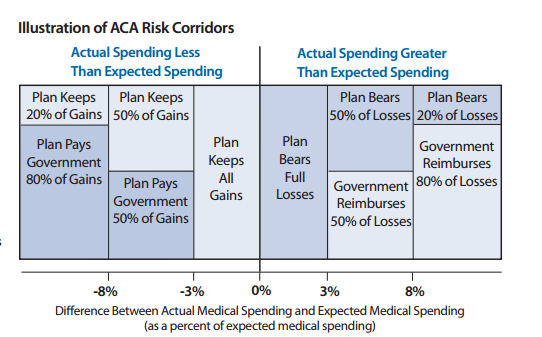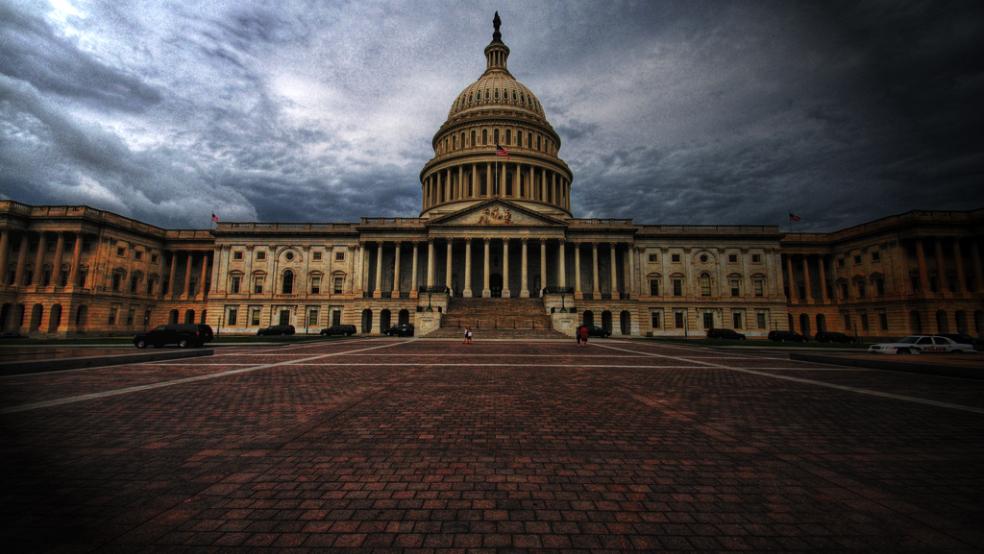The $1.1 trillion omnibus spending bill headed for approval in the House on Friday contains yet another GOP blow to the Affordable Care Act. This one blocks administration efforts to bolster a special fund created under the law to compensate insurance companies for excessive losses due to a disproportionate share of very sick or elderly enrollees.
Sen. Marco Rubio (R-FL) led a group of Senate and House Republicans have sought to prevent additional billions in funding for the so-called risk corridor program. It could also help cripple the national health insurance program Republicans have vowed to repeal and replace. Indeed, the tactic is having an effect as roughly half of the 23 non-profit insurance plans created under the 2011 Affordable Care Act at a cost of $2.4 billion have announced they will close their doors by the end of this year, largely because of inadequate compensation for unexpected losses.
Related: Nearly Half of Obamacare Co-Ops Are Closing
Rubio, a GOP candidate for president, has denounced the rate corridor program as a costly corporate bailout that cannot be justified. “Everyone running wants to dismantle Obamacare,” Rubio told The New York Times. “I’ve actually done something toward achieving that goal.”
Alice Rivlin, a former White House budget director and head of the Congressional Budget Office said on Thursday that the new congressional action is “very unfortunate” and will further damage the health insurance program.
“It’s forcing the government to renege on its promise to share the risk, and it has been damaging to weaker insurance companies and especially the co-ops – some of which have gone under already,” she said. “So extending [the funding restriction] for another year will just mean that companies that expected to have the government share in their risk if they underpriced their product will not get as much help, and it may discourage entry into the market.”
Jay Courtney, a spokesperson for America’s Health Insurance Plans (AHIP), a leading health insurers advocacy group, said, “The latest budget deals do nothing to address the recent funding shortfall with the risk corridors program or make up for the losses facing health plans in the exchanges.”
Related: Obamacare Enrollees Are Reeling from High Deductibles
The program originally was conceived as an insurance policy of sorts for major insurers who miscalculated in projecting how many of their enrollees would be young and healthy – and thus unlikely to make big demands on their coverage – and older and sicker enrollees who would require costly medical attention and prescription drugs.

The approach was intended to minimize the risk that insurers faced in setting their premiums and deductibles while complying with ACA requirements to accept enrollees with pre-existing medical conditions and adhere to other constraints on their profits. Rivlin, a policy expert with the Brookings Institution, recalled that during deliberations over the Obamacare legislation, insurance companies “were a little reluctant, because they weren’t familiar with this population of people who hadn’t previously had insurance.”
The insurers would be required to pay into a pool if their revenues and profits far exceeded their projections while the federal government would pay in when insurers’ revenues lagged far behind their projections. This was one way the Obama administration enticed insurers to take part in Obamacare, even though Rubio and others said it was an inappropriate guarantee.
A similar risk corridor program was set up to protect the pharmaceutical industry when the administration of President George W. Bush pushed through enactment of the Medicare Part D prescription drug program in 2003.
Related: Obamacare Gap Traps Millions With Coverage Who Can’t Afford Care.
Last year, the insurance companies paid just $362 million into risk corridor program while submitting $2.87 billion in claims for reimbursement. But the Republicans amended a spending bill to prevent the Department of Health and Human Services from transferring discretionary funds to bail out the program. The fiscal 2015 budget package approved last year specified that payments made to insurers under the risk corridors could not exceed collections. That is why the DHH’s payouts this year were equivalent to just 12.6 percent of the claims.
The new omnibus spending bill awaiting final approval by Congress this week once again bars the Obama administration from shifting funds to beef up the risk corridors program. A GOP summary of the spending package praised last year’s action for being able to save over $2.5 billion from potentially being transferred out of priority HHS discretionary spending. It also said that Congress will continue to insist that the risk corridor fund be kept “budget neutral” – meaning no shifting of funds.
The omnibus spending bill also imposes a two-year delay in implementation of a new tax on high-end, employer provided health insurance plans and a tax on the medical devices industry and postpones for one year another tax on health insurers.





